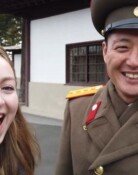Great hope of the expelled president
Great hope of the expelled president
Posted October. 18, 2017 07:35,
Updated October. 18, 2017 08:20
“I hope I will be the last victim of political revenge.” Former President Park Geun-hye made the remark on Monday, and the aftershocks of her words are quite strong. The impeached president is reportedly reading Japanese novel “Tokugawa Ieyasu,” which depicts power struggles and the rise and fall of three heroes, Oda Nobunaga, Toyotomi Hideyoshi and Tokugawa Ieyasu during the Sengoku period or Warring States period in Japan. The novel may have had an influence on her comments.
Park is known to have read this novel also when she lost a Grand National Party primary in 2007. The novel’s author Sohachi Yamaoka is one of the top three historical novelists in Japan. His book “Tokugawa Ieyasu” was first serialized in the Tokyo Shimbun from March 1950 to April 1967 until it was published as the series of 26 paperbacks. The sheer length of the novel is enormously long, with as many as 6,960,000 words. The novel was published also in Korea as the complete collection of 12 books in 1970, and former President Park Chung-hee, the imprisoned president’s father, had also read the novel before he met a tragic death.
As a war writer during World War II, Yamaoka could hear stories from special forces soldiers. He must have written the novel judging the country’s situation against the “reign of peace” realized by Ieyasu, hoping for the survival and revival of Japan from the fires of war. He was excellent at describing the subtle emotions of characters. Successfully reflecting the nature of the succession of power through characters described in a saying “Nobunaga pounds the national rice cake, Hideyoshi kneads it, and in the end Ieyasu sits down and eats it,” Yamaoka also impressively portrayed the personality of each character by illustrating varied ways the three would respond if the cuckoo does not sing: “kill it” (Nobunaga), “coax it” (Hideyoshi) and “wait for it” (Ieyasu).
Nobunaga, tall and good-looking, thought that “force” is what makes one a ruler. He enjoyed the reign of terror, making even his brothers and chief servants shudder with fear. In the end, he was killed by one of his own men. Another hero Hideyoshi was born into a poor family, being the son of a peasant, but later became one of Nobunaga’s most distinguished generals, and took power. Ieyasu also had to endure years of suffering until he finally ushered in the Edo period, which lasted for the next 265 years. One of his famous quotes says, “Life is like unto a long journey with a heavy burden.” On Monday, the ousted president made a comment that makes one wonder which of the three characters in the novel she would be relating to for enduring the life of imprisonment: “I may go through an even harder and more difficult course, but I will not give up.”







